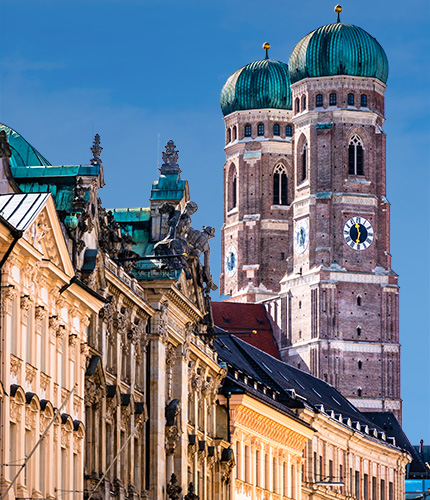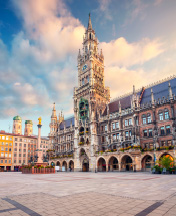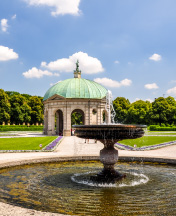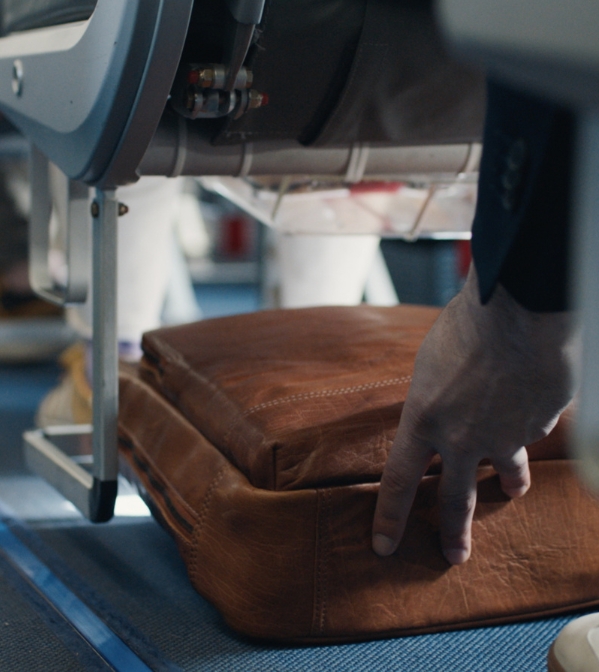Munich has its roots in a Benedictine monastery in Tegernsee, founded in the 8th century. The year 1158 is said to be the founding year of Munich, which is identified as the earliest date the city is mentioned in a document. In 1157 Henry the Lion (Heinrich der Löwe), Duke of Bavaria, granted the monks the right to found a market where the road from Salzburg met the river Izar. The following year a bridge was built on Izar and the market was fortified. In 1175 Munich officially received the status of a city and was fortified. Five years later, OttoI Wittelsbach became the Duke of Bavaria and Munich surrendered to the Bishop of Friesing. The Wittelsbach dynasty ruled Bavaria until 1918, while in 1806, Munich became the capital of the new Kingdom of Bavaria. In 1923 Hitler and his supporters, who were then gathered in Munich, staged a coup at Beer Hall, in an attempt to overthrow the Weimar Republic and seize power. During World War II, Munich was heavily bombed and the population of the city fell from about 800,000 to 500,000 while, during World War II, people were moving from Munich to other cities. After the end of the war, Munich was completely rebuilt following a - rather - conservative plan that preserved the pre-war grid of its roads and the population of the city surpassed 1 million in 1957. 1972 is another landmark year for Munich, as it hosted the Olympic Games at the time.













